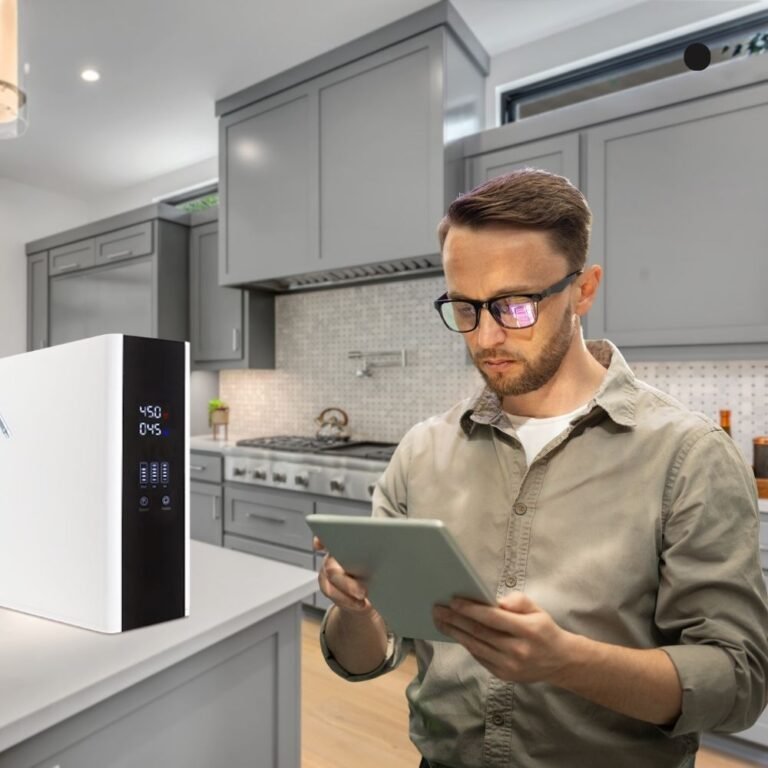Reverse Osmosis or Water Filtration: Which Provides Cleaner, Safer Water?
Water is one of the most important resources for our survival. It is essential for our daily activities such as drinking, cooking, cleaning, and hygiene. However, the quality of water is not always the same. Water can contain various contaminants such as bacteria, viruses, chemicals, and minerals that can be harmful to our health. Therefore, it is important to choose a water treatment method that can provide clean and safe water for our consumption. Two of the most popular water treatment methods are reverse osmosis and water filtration. In this article, we will compare these two methods and see which one provides cleaner, safer water.
What is Reverse Osmosis?
Reverse osmosis (RO) is a water treatment process that uses a semi-permeable membrane to remove impurities from water. The process involves applying pressure to the water to force it through the membrane, which blocks the impurities and allows clean water to pass through. The impurities are then flushed away as wastewater. Reverse osmosis can remove up to 99% of the contaminants in water, including bacteria, viruses, chemicals, and minerals.
eWater is a provider of reverse osmosis systems that are designed to provide clean and safe water for both residential and commercial use. Their systems use high-quality membranes that can filter out even the smallest particles and impurities from water. Their systems also come with multiple stages of filtration to ensure that the water is thoroughly cleaned before consumption. Additionally, eWater’s systems are easy to install and maintain, making them a convenient option for those who want to have clean water in their homes or businesses.
What is Water Filtration?
Water filtration is a water treatment process that uses a physical or chemical barrier to remove impurities from water. The process involves passing water through a filter that can trap the impurities and allow clean water to pass through. Water filtration can remove various contaminants from water, including sediment, chlorine, and some bacteria and viruses.
There are different types of water filtration systems available, such as activated carbon filters, ceramic filters, and UV filters. Each type of filter has its own strengths and weaknesses, and the choice of filter depends on the specific contaminants present in the water and the desired level of filtration.
Comparison of Reverse Osmosis and Water Filtration
Both reverse osmosis and water filtration are effective methods of water treatment that can provide clean and safe water. However, there are some differences between the two methods that can affect their performance and suitability for different situations.
Filtration Capacity
Reverse osmosis has a higher filtration capacity than water filtration. Reverse osmosis can remove up to 99% of the contaminants in water, while water filtration can only remove a portion of the contaminants. Reverse osmosis is especially effective at removing minerals such as lead, arsenic, and fluoride, which can be harmful to human health. Water filtration, on the other hand, is more suitable for removing sediment, chlorine, and other chemicals that affect the taste and odor of water.
Reverse osmosis produces more wastewater than water filtration. The process of reverse osmosis requires a significant amount of water to be flushed away as wastewater. This can be a concern for areas with water scarcity or high water bills. Water filtration, on the other hand, does not produce as much wastewater as reverse osmosis.
Reverse osmosis systems are generally more expensive than water filtration systems. Reverse osmosis systems require more complex technology and multiple stages of filtration, which can increase the cost of the system. Water filtration systems, on the other hand, are simpler and more affordable. However, the cost of the system depends on the specific type of filtration used and the level of filtration required.
Both reverse osmosis and water filtration systems require maintenance to ensure their performance and longevity. Reverse osmosis systems require more maintenance than water filtration systems. The membranes used in reverse osmosis systems need to be replaced periodically to maintain their effectiveness. Water filtration systems, on the other hand, require less maintenance and can last longer before needing replacement. However, the frequency of maintenance depends on the specific type of filtration used and the quality of the water being treated.
Conclusion
Reverse osmosis and water filtration are two effective methods of water treatment that can provide clean and safe water for consumption. The choice of method depends on the specific needs and circumstances of the user. Reverse osmosis is more effective at removing a wider range of contaminants, especially minerals that can be harmful to human health. Water filtration, on the other hand, is more suitable for removing sediment, chlorine, and other chemicals that affect the taste and odor of water. Both methods have their strengths and weaknesses, and the choice of method depends on the specific contaminants present in the water, the desired level of filtration, and the budget and maintenance requirements of the user.
If you’re interested in getting a reverse osmosis system for your home or business, consider eWater as your provider. Their systems are designed to provide clean and safe water and come with multiple stages of filtration to ensure thorough cleaning. They also offer easy installation and maintenance, making them a convenient option for those who want to have clean water without the hassle.


